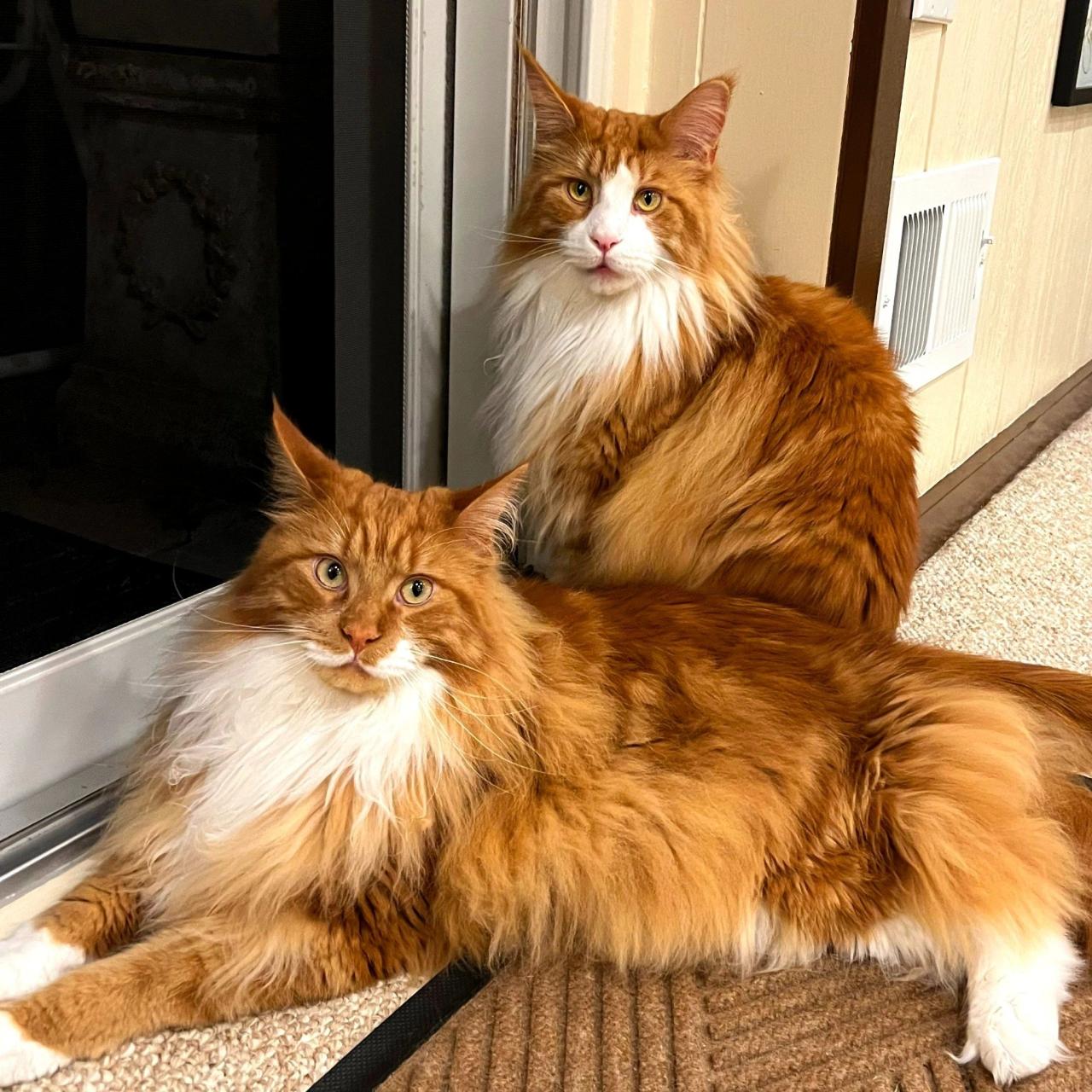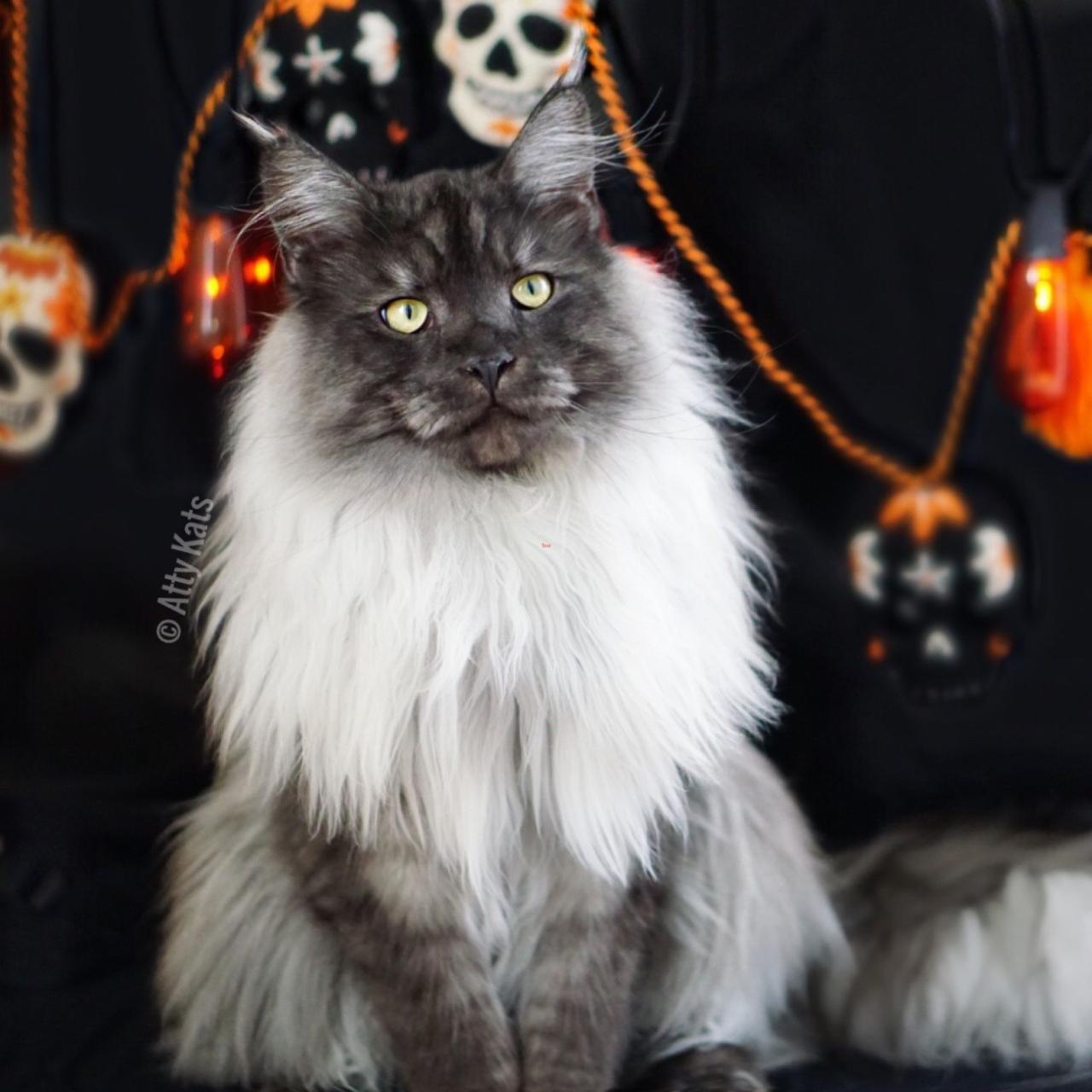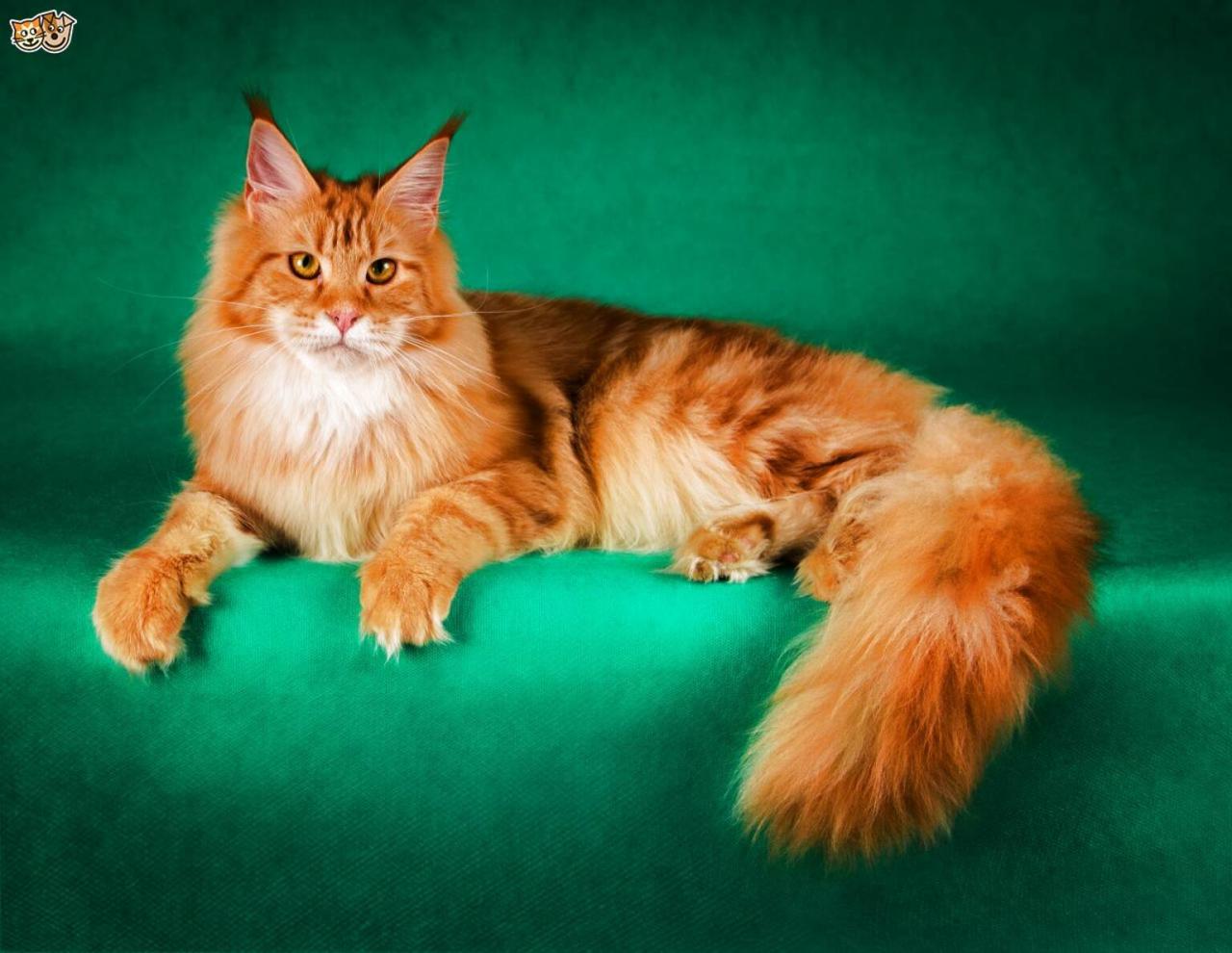Maine coon for sell – Embark on an extraordinary journey into the captivating world of Maine Coons, where majestic beauty and playful spirits intertwine. With their distinctive physical attributes, affectionate personalities, and rich history, these gentle giants are the epitome of feline elegance and companionship.
From their rugged origins in the state of Maine to their playful and affectionate nature, Maine Coons have captured the hearts of cat enthusiasts worldwide. Join us as we delve into the fascinating world of this beloved breed, exploring their unique characteristics, health considerations, and the joys of owning one of these magnificent creatures.
Maine Coon Breed Characteristics
The Maine Coon is a large, muscular cat with a distinctive physical appearance. Its most striking feature is its long, luxurious fur, which comes in a variety of colors and patterns. Maine Coons also have large, tufted ears, a broad chest, and a bushy tail.
In addition to their distinctive physical appearance, Maine Coons are also known for their affectionate and playful personality. They are gentle giants who love to be around people and other animals. Maine Coons are also very intelligent and curious, and they enjoy playing games and exploring their surroundings.
Origin and History
The Maine Coon is a native of the state of Maine, where it is believed to have originated in the early 19th century. The breed is thought to have developed from a cross between domestic cats and long-haired cats that were brought to Maine by European settlers.
Maine Coons quickly became popular for their ability to survive in the harsh Maine climate and for their friendly and affectionate nature.
Maine Coon Health and Care
Maine Coons are generally healthy cats with a life expectancy of 12-15 years. However, like all breeds, they are prone to certain health conditions.
- Hypertrophic cardiomyopathy (HCM):This is a condition in which the heart muscle becomes thickened, making it harder for the heart to pump blood. HCM is the most common cause of heart disease in cats, and it can be fatal if left untreated.
- Polycystic kidney disease (PKD):This is a condition in which cysts develop in the kidneys. PKD can lead to kidney failure, and it is often fatal.
- Hip dysplasia:This is a condition in which the hip joint does not develop properly. Hip dysplasia can cause pain, lameness, and arthritis.
It is important to take your Maine Coon to the veterinarian for regular checkups and vaccinations. Regular checkups can help your veterinarian detect and treat health problems early on, when they are most treatable. Vaccinations can help protect your Maine Coon from serious diseases, such as feline leukemia virus (FeLV) and rabies.Dental
care is also important for Maine Coons. Regular brushing can help prevent plaque and tartar buildup, which can lead to gum disease and tooth decay.
Grooming and Brushing
Maine Coons have long, thick fur that requires regular grooming and brushing. Brushing helps to remove loose hair, prevent mats and tangles, and distribute natural oils throughout the coat.To groom your Maine Coon, you will need a slicker brush, a comb, and a pair of scissors.
Start by brushing your cat’s fur in the direction of hair growth. Use the slicker brush to remove loose hair and mats. Then, use the comb to remove any tangles. Finally, use the scissors to trim any mats or tangles that you cannot remove with the brush or comb.It
is important to groom your Maine Coon regularly, especially during shedding season. Shedding season occurs twice a year, in the spring and fall. During shedding season, you may need to brush your cat more often to prevent mats and tangles.
Maine Coon Diet and Nutrition
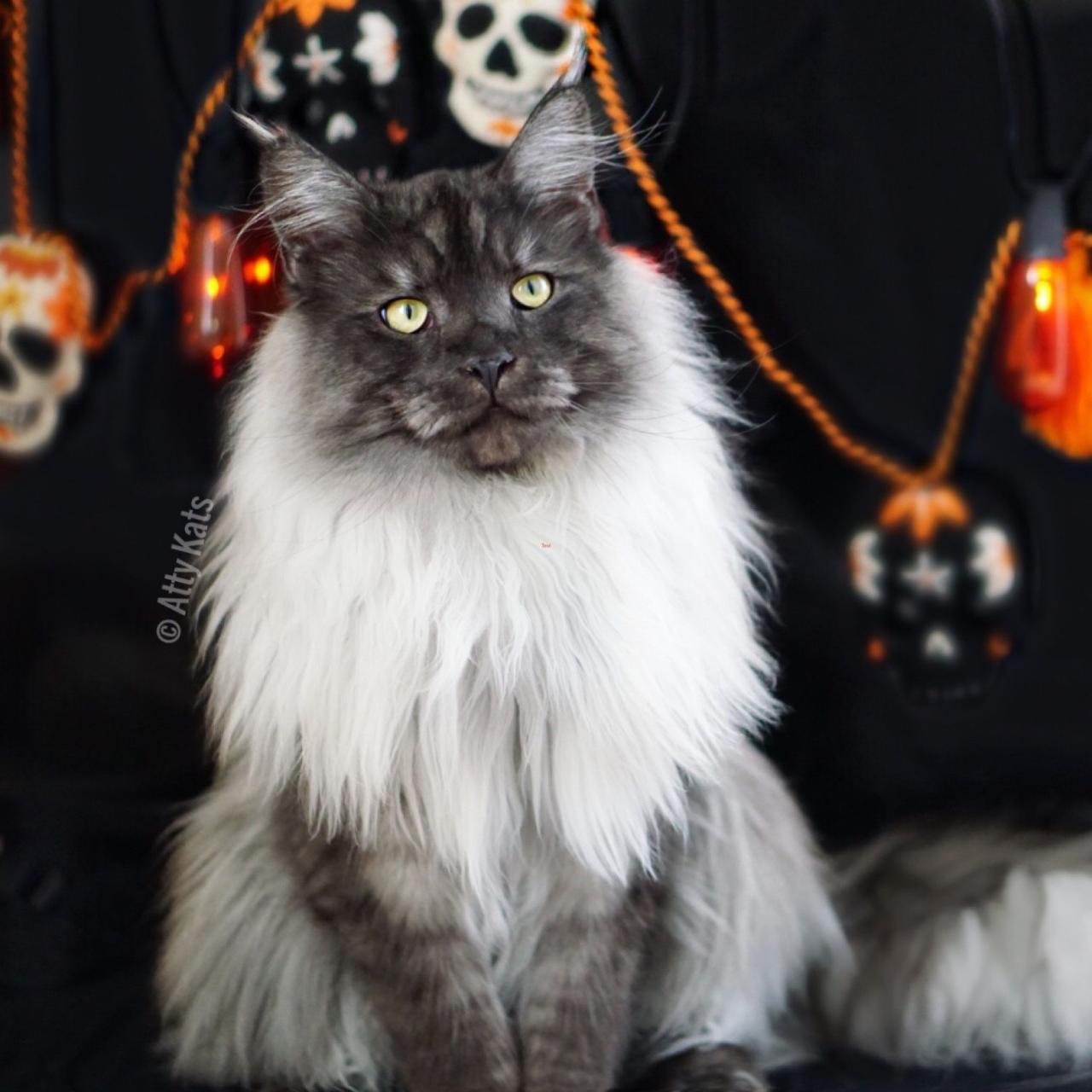
Maine Coons are large and active cats with specific dietary needs. Providing them with a high-quality diet is essential for their overall health and well-being.
Maine Coons require a diet rich in protein, which is essential for building and maintaining muscle mass. They also need a moderate amount of fat to provide energy and support healthy skin and coat. Additionally, Maine Coons need essential nutrients such as vitamins, minerals, and amino acids to support their overall health.
Frequency and Portion Sizes
The frequency and portion sizes of meals for Maine Coons vary depending on their age and weight. Kittens need to eat more frequently than adult cats, and they require smaller portion sizes. Adult Maine Coons should be fed twice a day, with the amount of food adjusted based on their weight and activity level.
A good rule of thumb is to feed Maine Coons 1/2 to 1 cup of food per day, divided into two meals. However, it is important to adjust the portion size based on your cat’s individual needs.
If you are unsure about how much to feed your Maine Coon, it is always best to consult with your veterinarian.
Maine Coon Exercise and Enrichment
Maine Coons, despite their large size, are playful and energetic cats that require ample opportunities for physical activity to maintain their well-being. Providing them with a stimulating environment is crucial for their overall health and happiness.
Interactive Games and Toys
Engage your Maine Coon in interactive games that stimulate their hunting instincts, such as chasing toys on a string or playing fetch with small, soft objects. Puzzle feeders and treat-dispensing toys are also excellent ways to keep their minds active while providing mental enrichment.
Climbing Structures and Scratching Posts
Maine Coons are natural climbers and love to perch on high vantage points. Provide them with tall cat trees, shelves, and window perches to satisfy their climbing desires. Scratching posts are essential for maintaining their nail health and preventing them from scratching furniture.
Hiding Places
Create cozy hiding places throughout your home where your Maine Coon can retreat for privacy and security. Cardboard boxes, cat tunnels, and designated quiet spaces are all suitable options that provide them with a sense of comfort and safety.
Maine Coon Training and Behavior: Maine Coon For Sell

Maine Coons are known for their intelligence and willingness to learn, making them relatively easy to train. They respond well to positive reinforcement techniques, such as treats, praise, and playtime. Patience and consistency are key when training a Maine Coon.
Socialization
Early socialization is crucial for Maine Coons to prevent behavioral problems. Exposing them to different people, animals, and environments at a young age helps them become well-rounded and adaptable cats.
Maine Coon Grooming and Appearance
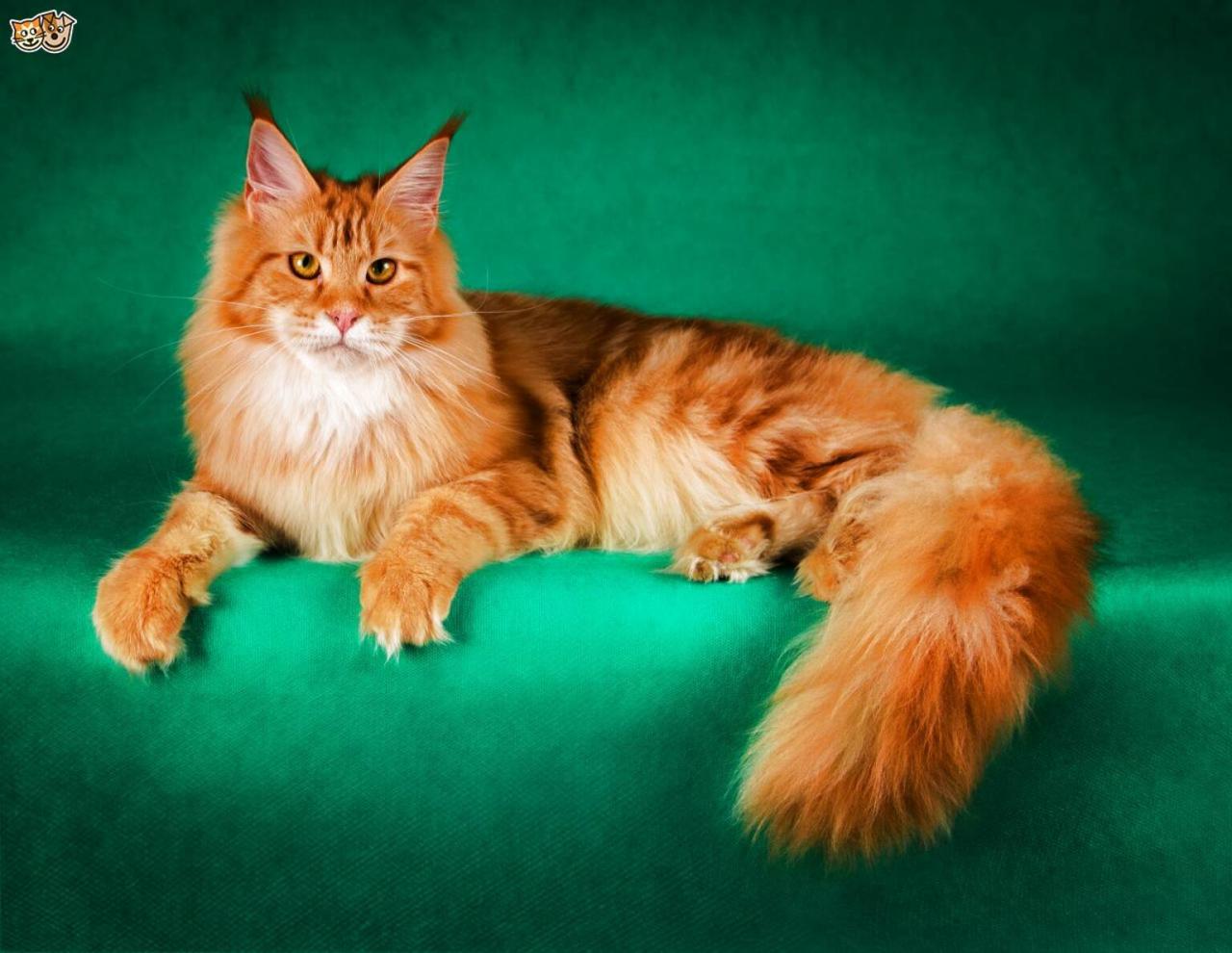
Maine Coons possess a luxurious double coat that requires dedicated grooming to maintain its beauty and health. Regular brushing and combing remove loose hair, prevent matting, and distribute natural oils throughout the coat. Bathing, nail trimming, and ear cleaning are also essential aspects of Maine Coon grooming.
Brushing and Combing
Maine Coons require daily brushing and weekly combing to keep their fur in optimal condition. Daily brushing removes loose hair, dirt, and debris, preventing mats and tangles. Weekly combing removes undercoat and dead hair, promoting healthy hair growth and preventing shedding.
Use a slicker brush for daily brushing and a wide-toothed comb for weekly combing.
Bathing
Maine Coons do not require frequent bathing. Bathing every 2-3 months is sufficient to maintain a clean and healthy coat. Use a gentle cat shampoo and lukewarm water. Avoid using human shampoos, as they can strip the natural oils from the coat.
Rinse thoroughly and towel dry the cat.
Nail Trimming
Regular nail trimming is essential for Maine Coons to prevent overgrown nails that can become uncomfortable and cause health issues. Trim the nails every 2-3 weeks using a cat nail clipper. Trim only the white tips of the nails, avoiding the quick (the pink part of the nail) to prevent bleeding.
Ear Cleaning
Maine Coons’ ears should be checked and cleaned regularly to prevent infections. Use a cotton ball or soft cloth dampened with a pet-safe ear cleaner to gently wipe away any debris or wax. Avoid using cotton swabs, as they can damage the ear canal.
Maine Coon Breeding and Genetics

Responsible breeding practices are crucial for maintaining the health and well-being of the Maine Coon breed. Breeders must prioritize the preservation of the breed’s unique traits while avoiding inherited health issues.
The Maine Coon exhibits a wide range of fur colors and patterns, including classic tabby, mackerel tabby, and solid colors. Eye colors can vary from green, gold, and copper to blue or odd-eyed (one blue and one green eye).
Genetic Testing and Health Screening
Genetic testing can identify carriers of inherited diseases such as hypertrophic cardiomyopathy (HCM), polycystic kidney disease (PKD), and spinal muscular atrophy (SMA). By screening breeding stock, breeders can reduce the risk of passing on these conditions to future generations.
Regular health checks, including physical exams, bloodwork, and echocardiograms, are essential for detecting and managing health issues early on.
Maine Coon Kittens
Selecting a Maine Coon kitten is an exciting experience, but it’s crucial to approach it responsibly. Choosing a reputable breeder who prioritizes the health and well-being of their cats is paramount. Visit their facilities, inquire about their breeding practices, and request health records for the parents.Once
you’ve chosen a breeder, carefully observe the kittens. Healthy kittens are active, playful, and have clear eyes and noses. They should be well-socialized and comfortable being handled. Avoid kittens that exhibit signs of illness, such as lethargy or respiratory distress.
Maine Coon Seniors
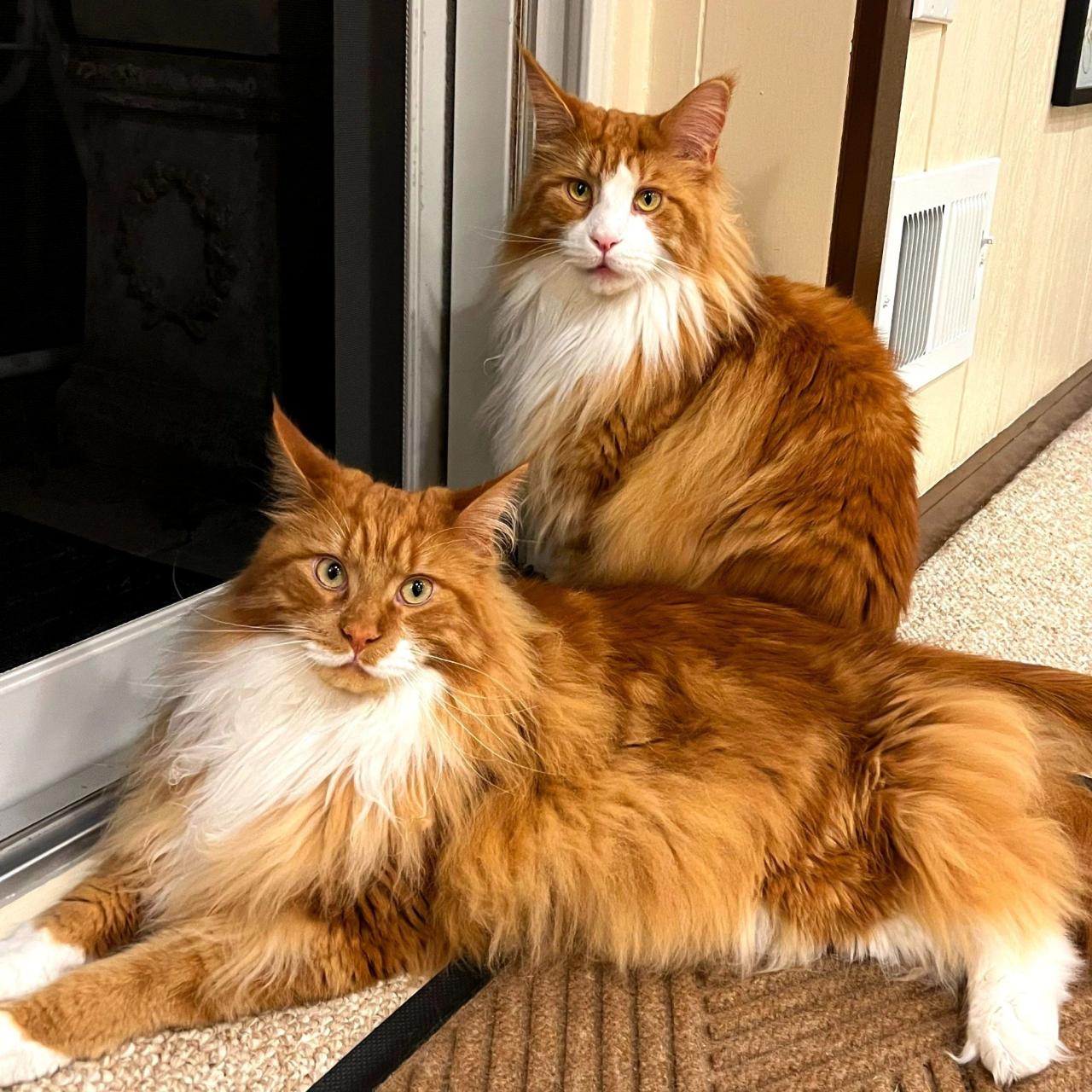
As beloved Maine Coons reach their golden years, their needs evolve, and providing them with the utmost care becomes paramount. Senior Maine Coons may face age-related health concerns, reduced mobility, and other challenges that require special attention and modifications to their environment and routine.
Understanding their unique requirements and implementing appropriate care strategies will ensure their comfort, well-being, and continued enjoyment of life.
Veterinary Care
Regular veterinary checkups are crucial for early detection and management of health issues common in senior Maine Coons, such as arthritis, dental disease, and kidney problems. Your veterinarian can provide guidance on appropriate vaccinations, parasite prevention, and dietary adjustments to support their health and longevity.
Dietary Adjustments
As Maine Coons age, their metabolism slows down, and their nutritional needs may change. Senior-specific diets are formulated with reduced calories and higher levels of fiber to maintain a healthy weight and support digestive health. Additionally, ensuring adequate hydration is essential, especially if they are prone to kidney issues.
Environmental Modifications
Creating a supportive and enriching environment for senior Maine Coons involves making modifications to their surroundings. Providing soft, comfortable bedding with ample support for their joints, installing ramps or stairs to assist with mobility, and ensuring easy access to food, water, and litter boxes are important considerations.
Additionally, reducing potential hazards, such as slippery floors or sharp objects, can help prevent accidents.
Enrichment Activities
Despite reduced mobility, senior Maine Coons still enjoy mental and physical stimulation. Interactive toys that encourage gentle movement, such as puzzle feeders or wand toys, can provide enrichment and keep their minds active. Additionally, providing access to safe outdoor spaces, such as a screened-in porch or a secure catio, allows them to enjoy fresh air and sunshine.
Emotional Support
As Maine Coons age, they may experience loneliness or anxiety due to reduced activity levels or changes in their routine. Providing them with plenty of love, attention, and companionship can help ease any emotional distress. Regular grooming sessions can also be a bonding experience and a way to check for any health issues.
Maine Coon Resources and Community
The Maine Coon community is vibrant and supportive, with a wealth of resources available to help owners and enthusiasts connect, learn, and care for their beloved felines.
Joining Maine Coon clubs and participating in breed-specific events offers numerous benefits, such as access to exclusive information, networking opportunities with fellow enthusiasts, and the chance to showcase your Maine Coon’s unique qualities.
Maine Coon Organizations and Websites
- The Maine Coon Breeders and Fanciers Association (MCBFA): The oldest and largest Maine Coon organization, dedicated to promoting the breed and providing resources to breeders and owners.
- The Maine Coon Cat Club (MCCC): A non-profit organization that hosts shows, offers educational programs, and advocates for the well-being of Maine Coons.
- Maine Coon Central: A comprehensive website providing information on Maine Coon care, history, and genetics.
Online Forums and Social Media Groups, Maine coon for sell
Online forums and social media groups provide a platform for Maine Coon owners to connect, share experiences, and seek advice from fellow enthusiasts and experts.
- Maine Coon Forums: A popular online forum dedicated to all aspects of Maine Coon ownership, with sections on health, behavior, grooming, and more.
- Maine Coon Cat Lovers: A Facebook group with over 100,000 members, where owners can share photos, ask questions, and engage in lively discussions.
Finding Maine Coon Breeders and Adoption Centers
Finding a reputable Maine Coon breeder or adoption center is essential for ensuring the health and well-being of your new companion.
- The MCBFA Breeder Directory: A list of reputable Maine Coon breeders who adhere to strict ethical standards.
- Petfinder: A website that connects potential adopters with cats and kittens from shelters and rescue organizations.
Veterinary Specialists
For specialized veterinary care, it is recommended to seek out veterinarians who have experience with Maine Coons or feline medicine.
- The American College of Veterinary Internal Medicine (ACVIM): A professional organization that certifies veterinarians in feline medicine.
- The American Association of Feline Practitioners (AAFP): A non-profit organization dedicated to advancing feline veterinary medicine.
Final Conclusion

As we bid farewell to the captivating world of Maine Coons, let us cherish the memories of their playful antics, gentle companionship, and unwavering loyalty. Whether you are a seasoned cat owner or a first-time enthusiast, the Maine Coon’s enduring charm will leave an everlasting paw print on your heart.
Embrace the joy of owning one of these magnificent felines and witness firsthand the extraordinary bond that can only be forged between humans and these gentle giants.

